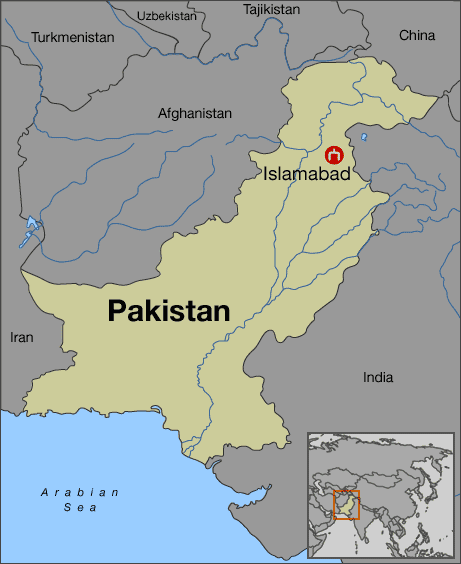Death toll rises to 52 in Pakistan hotel bombing
 Islamabad - Rescuers found more bodies from the gutted Marriott Hotel in the capital Sunday, increasing the official death toll to 52 in one of Pakistan's worst suicide bombings to officials said.
Islamabad - Rescuers found more bodies from the gutted Marriott Hotel in the capital Sunday, increasing the official death toll to 52 in one of Pakistan's worst suicide bombings to officials said.
Raging fire that completely destroyed the six-storey building held back the rescuers through the night, before they could conduct room-to-room searches for survivors or bodies who died of suffocation or were burnt alive.
"The total death toll now stands at 52 after some charred bodies were recovered from the hotel this morning," said Islamabad police chief Asghar Raza Gardezi.
About 260 people were injured, dozens of them foreigners.
An identity card found showed that one body found Sunday was of a diplomat from eastern Europe, a rescue official told Deutsche Presse Agentur dpa on condition of anonymity.
A truck loaded with around 1 ton of explosives Saturday evening rammed into the security barrier of the luxury hotel which was packed with hundreds of guests. The huge blast left a crater more than 6 metres deep and 9 metres wide.
The explosion shattered the windows of buildings and damaged structures near the hotel, which is located less than a kilometre from the residences of the prime minister and president.
The hotel was frequented by diplomats, foreigners and influential Pakistani figures.
Media reports cited unnamed police officials as saying that a group of 30 US Marines, who were allegedly part of a security team for this week's visit of Admiral Mike Mullen, chairman of US Joint Chiefs of Staff Committee, might have been the intended targets of the attacker.
The US personnel were scheduled to leave for Afghanistan on Sunday morning, the private Urdu-language Aaj television channel said.
Hotel owner Sadruddin Hashwani said 39 victims, including three foreigners, were staff members. He vowed to fully renovate the hotel within four months.
Gardezi said investigators were determining the type of explosive were used in the bombing, but rain doused the blast site and raised fears that some vital evidence might be lost.
President Zardari condemned the attack in a brief televised address to the nation early Sunday. "Terrorism is an epidemic, a cancer which we will eliminate at all costs," he said.
He called Pakistani a brave nation that the would not be cowed by terrorist acts. "Pakistanis consider their lives a trust of Allah Almighty and have no fear of death as its day is fixed," he said.
Similar condemnations came from the international community. US President George W Bush said it was "a reminder of the ongoing threat faced by Pakistan, the United States, and all those who stand against violent extremism."
A statement from the European Union presidency, currently held by France, said the EU would "more than ever stand side by side" with Pakistan in its struggle against terrorism. (dpa)